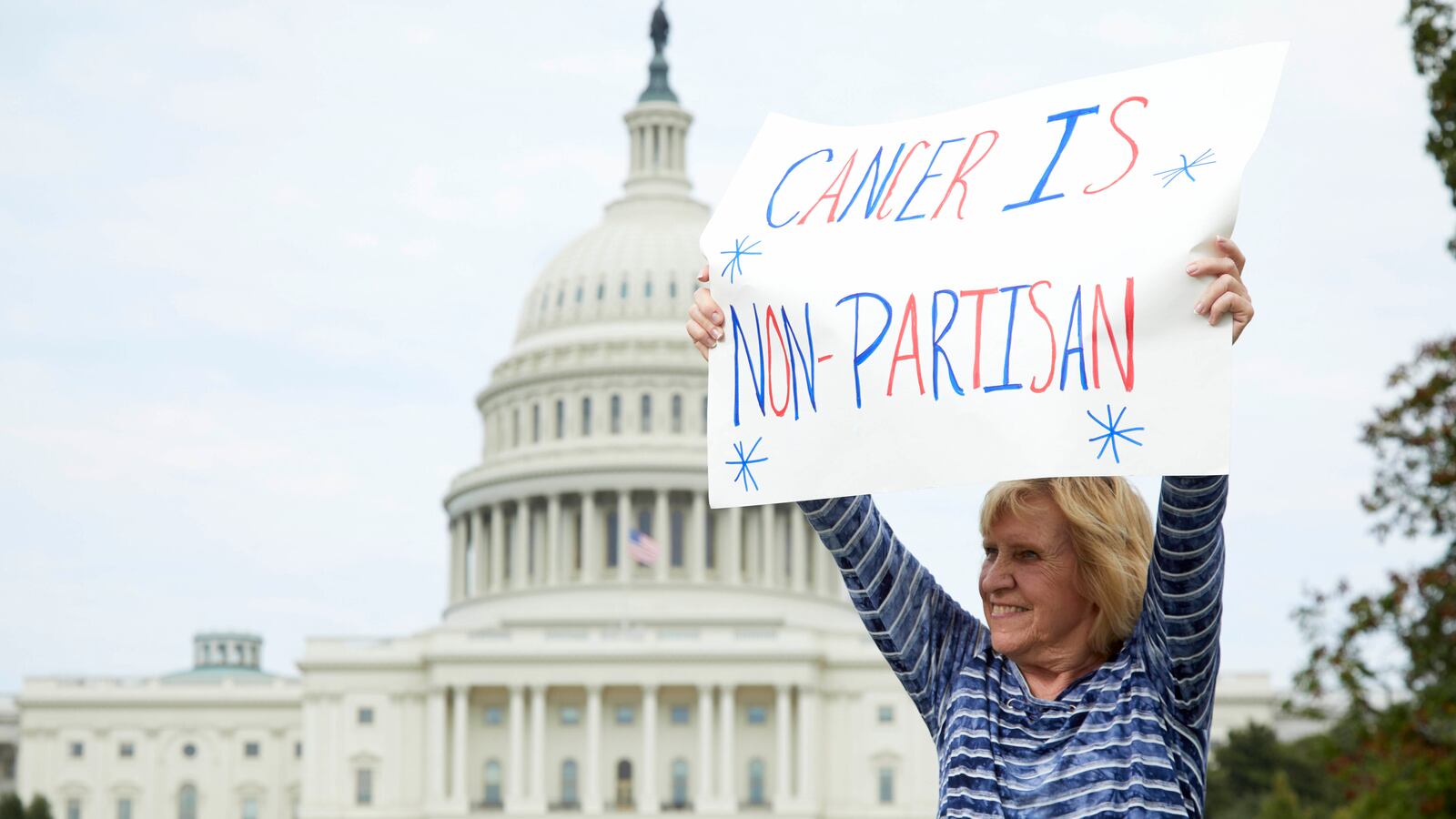By Krista DeMaio
When you make a donation to the American Cancer Society, you might assume your dollars are supporting cancer research that can yield new life-saving treatments. But research isn’t the only type of donation-funded progress helping to change the current landscape of cancer.
The American Cancer Society’s nonpartisan advocacy affiliate, the American Cancer Society Cancer Action Network (ACS CAN), is the nation’s leading cancer advocacy organization. Its goal? To safeguard and improve the health of people with cancer, survivors, and their loved ones. ACS CAN is fighting in city hall, state capitols, and Congress to advocate for affordable access to quality medical care for all. This advocacy engine, which just celebrated its 20th anniversary, works to ensure the mission of ACS touches as many lives as possible.
From legislation that helps underrepresented communities get access to quality treatments and have more opportunities to take part in clinical trials, to extending healthcare to people who lost coverage during the COVID-19 pandemic, ACS CAN is an essential advocate in the fight against cancer. Learn more about the recent advocacy efforts that are changing the world for good—and what you can do to multiply their impact.
ACS CAN advocates for cancer prevention
While the organization is well-known for serving people with cancer, survivors, and their loved ones, preventing cancer is also a major priority. In 2021 and 2022, increasing federal funding for cancer research and prevention are two major areas of focus.
What does that look like? “We’re supporting policies to reduce death and disease from tobacco products, including preventing youth from starting smoking and helping more adults to quit,” says Lisa Lacasse, president of ACS CAN.
ACS CAN works to reduce the tobacco burden in the U.S. by advocating for higher tobacco taxes, offering greater access to quitting services, and increasing the number of Americans covered by smoke-free laws.
Making clinical trials accessible to all
Ever heard of the Henrietta Lacks Enhancing Cancer Research Act? Last year, ACS CAN worked to pass it, paving the way for people from diverse backgrounds to more easily enroll in federally-sponsored clinical cancer trials.
“Communities of color and other medically underserved groups continue to have higher cancer rates and are less likely to be diagnosed early or receive optimal treatment compared to other groups,” says Lacasse. Clinical trials are among the best ways for people with cancer to access cutting-edge care, so trials need to be available and accessible to all regardless of race, ethnicity, geographical location, and age.
To continue this important work, ACS CAN is supporting the bipartisan DIVERSE Trials Act, a bill that addresses health equity and disparities by making clear clinical trial sponsors can reimburse patients for out-of-pocket costs such as travel, lodging, and food, and to provide them with any technology necessary for remote participation.
“Patients should not have to shoulder the extra costs of increased trips to the doctor or new technology required to be an active participant in a trial that could save their lives or those of others,” says Lacasse.
Pushing for affordable cancer screenings and care
The COVID-19 pandemic affected the healthcare coverage of many Americans, including people with cancer. ACS CAN advocated for provisions in recent bills before Congress, including extending the enrollment period for people to sign up for coverage in the marketplace, increasing subsidies so people can better afford marketplace health coverage, and increasing resources that would allow for Medicaid expansion. Medicaid plays an essential role in providing limited-income families with comprehensive health coverage, including cancer treatment.
The organization also advocated for the No Surprises Act, which protects people with cancer from unexpected or “surprise” medical bills from an out-of-network provider. According to an ACS CAN survey, a quarter of cancer patients surveyed have received bills of this kind for more than $500, and 20% incurred bills for more than $3,000.
“Ensuring patients are not on the hook for this kind of unexpected, unintentional, and sometimes unavoidable expense is a tremendous benefit,” Lacasse said.
What’s next? The organization is advocating for a cap on out-of-pocket expenses for prescription drugs for those enrolled in Medicare, making increased subsidies for purchasing healthcare on the exchange permanent, and expanding Medicaid in 12 states that haven’t done so yet.
Get involved in the fight
To help fund ACS CAN, visit the ACS CAN donation page, and choose the amount of your donation that will go directly to the organization. (Tip: You can even make a donation in honor of a loved one whose life has been impacted by the disease, and the ACS CAN will send them a card notifying them of your gift.)
You can also donate your time—and voice—to ACS CAN. “Our highly organized volunteer program gives everyone a way to fight back. We provide access to trainings, tools, and resources to amplify the patient voice and advocate for impact on cancer,” says Lacasse. For more information, and to get involved, visit fightcancer.org.





